-
(43)
Nice and lightweight Japanese Santoku...If youre looking for a traditional style Japanese knife, the Koh Santoku knife is for you....You will love the traditional Japanese octagon handle, fits nicely in all hands.
Pros: sharpness, lightweight, comfortable handle
Add to Bag -
(34)
A great prep knife...If youre looking for a traditional style handle and thin blade, this Japanese knife is the one for you....great all around knife...It goes through a double hardening process giving a very durable yet thin blade. The Japanese craftsmanship...
Pros: sharpness, versatility, lightweight
Add to Bag -
(33)
I finally have a sharp knife!...All of my life, my cutlery have been a comglomeration of leftover knives from other's kitchens and cheapo knives I purchased at Target. ...Great lightweight paring knife...If youre looking for a traditional style Japanese...
Pros: sharpness, comfortable handle, sharp blade
Add to Bag -
(15)
Ultra-sharp, ultra-versatile and perfectly balanced, each knife in this extensive 10-piece set plays a key role in preparing the perfect meal. A sharpening steel helps keep your knives in perfectly sharp condition, and kitchen shears make quick work...
Pros: functional, chip resistant, razor sharp blades
Add to Bag -
(41)
Great prep knife...Miyabi makes wonder and durable Japanese knives, definitely one of the best prep knives on the market....I absolutely love this petite knife. I wouldn't say I like using traditional pairing knives, and this knife is the perfect in-between....
Pros: sharpness, durable, versatility
Add to Bag -
(30)
The Potent core of SG2 micro-carbide powder steel is protected by 100 layers of steel, hand-honed using the traditional 3-step Japanese Honbazuke method. 5000MCD, Cryodur ice-hardened; 63 Rockwell hardness. ...Love the design the 100 layers of steel...
Pros: sharpness, durable, beautiful
Add to Bag -
(70)
So sharp for a paring knife and beautiful!...
Blade features a Katana edge, hand-honed using the traditional 3-step Japanese Honbazuke method. 5000MCD, Cryodur ice-hardened; 63 Rockwell hardness. ...Japanese knives...a cooking teacher told me women should...Pros: sharpness, sharp blade, comfortable handle
Add to Bag -
(501)
Cuts through everything with ease, and fits in the hand comfortably, sharp and everything you want in a traditional Japanese chefs knife!...I like the slightly thicker western style chefs knife with a more Japanese handle and steel....Great Japanese...
Pros: sharpness, balance, lightweight
Add to Bag -
(191)
German engineering meets Japanese beauty...Gorgeous knife that has the reliability that I expect from Henckel knives. ...This is the best knife Ive ever owned - and I love Japanese knives!
Pros: sharpness, comfortable handle, versatility
Add to Bag -
(183)
I think this is an excellent knife for anyone who is used to using European knives but is trying out Asian and Japanese knives and wants to get used to it before purchasing....Great lightweight knife...If youre looking for a traditional style Japanese...
Pros: sharpness, durable, comfortable handle
Add to Bag -
(116)
Great every day chef's knife. Lighter than a traditional 8 inch chef's knife, and much sharper. ...Its our entry into the Japanese knives. We will definitely be looking to buy other Miyabi products.
Pros: sharpness, comfortable handle, edge retention
Add to Bag -
(93)
A great Prep knife...I love the look of this knife and how it has certain features that make it a true Japanese knife, like the mirrored finish aspect to the blade and the shape of the handle. ...German Japanese quality!...This is a perfect knife for...
Pros: sharpness, comfort, versatility
Add to Bag -
(74)
A great utility knife...This is a really great Japanese Paring/Utility knife. I love the aesthetic of these Japanese knives and how beautiful the 64 layers of VG10 steel is on the blade. ...My first experience with Japanese knives and I'm hooked. The...
Pros: comfortable handle, versatility, sharp blade
Add to Bag -
(63)
A great Japanese rocking santoku...This blade has a nice lighter weight to it, but is very sharp. This is a great knife if you want to go from Western style knives to Asian, with the Evolution, it brings the two styles together, making it a much more...
Pros: versatility, sharpness, comfortable handle
Add to Bag -
(48)
Amazing knife...This was my first Japanese knife and I?m in awe of how good it is. Would definitely purchase another Japanese knife. ...The slim handle is very comfortable to hold and is well balanced. The traditional Japanese blade crafting methods...
Pros: sharpness, versatility, appearance
Add to Bag -
(44)
These are, by far, the best Japanese style, thin-blade knives I've ever had. Not a bad one in the bunch. ...Miyabi makes wonder and durable Japanese knives, definitely one of the best rocking santoku knives on the market.
Pros: sharpness, comfortable handle, functional
Add to Bag -
(42)
Perfect for everything from slicing a tomato to cutting kitchen twine, this nimble prep knife packs incredible versatility into a small, easy-to-handle package.
Miyabi’s latest collection offers the ideal blend of revolutionary technology with centuries...Pros: sharpness, precision, quality
Add to Bag -
(39)
Professional quality Japanese Slicing Knife...carves Roasts,Turkey & Ham so easily....Japanese knife perfection...The birchwood series have scalpel like sharpness that last longer than any knives I have owned. I absolutely love these knives and look...
Pros: sharpness, durable, sharp blade
Add to Bag -
(37)
A great slicing Japanese knife...This is a really great Japanese slicing knife. The Kaizen II has a beautiful blade and the Micarta wood handle feels really smooth in hand, and has a nice roundedness to it. ...The shape of the handle is, in my opinion,...
Pros: sharpness, comfortable handle, balance
Add to Bag -
(37)
Best knife ever...I have pretty much all the high end knives, but this one is my go to knife. Especially for garlic, crush the clove and then drag the flat tip across and the clove andyou're done....Very sharp so thin, uniform slices are a breeze. My...
Pros: sharpness, quality, efficiency
Add to Bag -
(36)
Amazing knife!...For my first Japanese knife, this kiritsuke sliced so smooth and sharp. ...Sharpest knife...With its companion, the birchwood prep knife. These are the only two knives you?ll need.
Pros: sharpness, beautiful, balance
Add to Bag -
(18)
I felt Japanese samurai ancestors made those knives. Reiko...It is a great addition to my knife rack, which also houses a number of good quality knives.
Pros: sharpness, size, weight
Add to Bag -
(44)
I'm very happy with the knife set I got....Excellent knife set for a really good price. Just the right knives you need for a starter set.
Pros: sharpness, quality, appearance
Add to Bag -
(40)
A smaller santoku knife, this is a great Japanese knife. The FC61 steel of the Evolution santoku is a nice and durable blade and has a great sharp edge retention on it, perfect for chopping smaller produce, meat and veggies. ...awesome knife...This knife...
Pros: sharpness, comfortable handle, durability
Add to Bag
Traditional Japanese Knives
Looking to add a touch of authenticity and precision to your culinary adventures? Look no further than our collection of traditional Japanese knives. Renowned for their exceptional craftsmanship and time-honored techniques, these knives are a staple in any professional or home kitchen. With their razor-sharp blades, ergonomic handles, and exquisite designs, these Japanese knives offer the perfect blend of form and function. Whether you're a seasoned chef or an aspiring home cook, discover the artistry and excellence that comes with using traditional Japanese knives.
Traditional Japanese Knives
When considering a purchase from our selection of Sur La Table Japanese knives, it’s important to think about your cooking style and the types of dishes you enjoy preparing. For instance, a classic gyuto or santoku is a versatile choice for most home kitchens, handling everything from dicing onions to carving proteins with ease. If you gravitate toward Asian cuisine or want to explore traditional techniques, specialty blades like the nakiri for vegetables or the yanagiba for sashimi offer precision tailored to those tasks. These knives also make thoughtful gifts for anyone passionate about cooking, from recent graduates setting up their first kitchen to seasoned chefs looking to expand their collection. Giving a Japanese knife is a gesture that speaks to the recipient’s love of craft and quality—a gift that’s both practical and deeply personal. As you explore the world of asian knives, you might come across terms and reviews, such as a misono knife review, which can offer insights into the subtle differences between makers and styles. Taking the time to choose the right knife ensures it will be a trusted companion for years to come, whether you’re preparing a simple summer salad or an elaborate multi-course meal.
Caring for Japanese knives is a rewarding ritual in itself. These blades are typically made from high-carbon steel or layered Damascus, which means they hold a keen edge but require a bit more attention to cleaning and storage. Hand-washing and immediate drying help preserve their sharpness and beauty, while regular honing keeps the edge in peak condition. Over time, many cooks develop a bond with their favorite blade, recalling the meals and memories created together. If you’re searching for guidance or want to compare the finest options, our curated list of the Best Japanese Chef Knives offers expert recommendations to help you find the perfect fit. Whether you’re slicing ripe July tomatoes or preparing a family feast, Japanese knives bring precision, artistry, and a sense of tradition to every kitchen.
Top Picks For Traditional Japanese Knives
FAQ List
Traditional Japanese knives are known for their exceptional sharpness and craftsmanship. They are often made using centuries-old techniques and high-quality materials, resulting in blades that offer unparalleled precision and edge retention.
To maintain the longevity of your traditional Japanese knives, it is important to hand wash them with mild soap and warm water. Avoid using harsh abrasives or dishwashers, as they can damage the blade. Additionally, regular honing and occasional sharpening will help keep the knives in optimal condition.
Yes, many traditional Japanese knives are designed to be ambidextrous, making them suitable for both right-handed and left-handed individuals. However, it's always a good idea to check the product description or consult with our customer service team to ensure the specific knife you're interested in is suitable for left-handed use.
Absolutely! Traditional Japanese knives are versatile and can be used for various tasks in the kitchen, including cutting meat and poultry. The sharpness and precision of these knives make them ideal for achieving clean and precise cuts.
While professional sharpening is an option, it is not always necessary for traditional Japanese knives. With proper care and maintenance, regular honing and occasional sharpening at home can help keep the blades sharp. However, if you prefer professional sharpening, it is always best to seek the assistance of a reputable knife sharpening service.

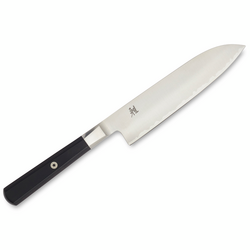
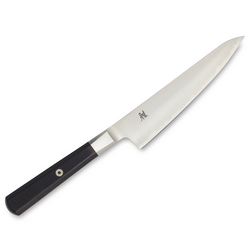
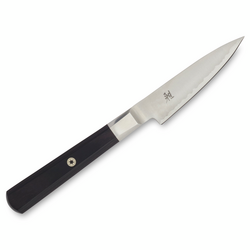
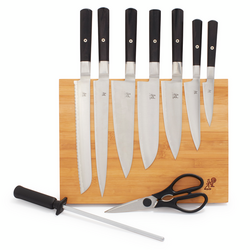
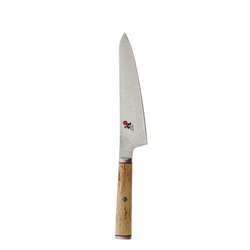
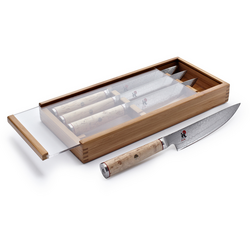
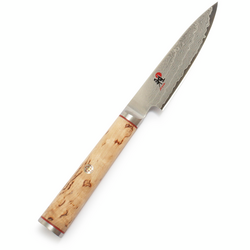
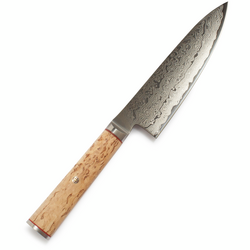
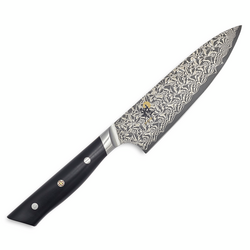
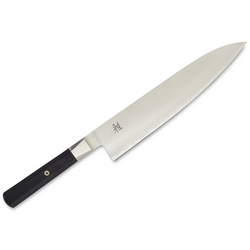
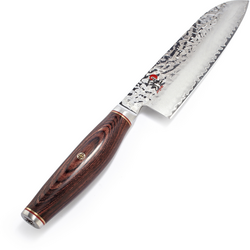
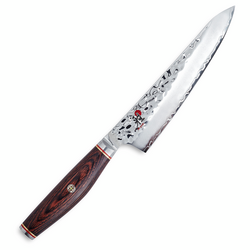
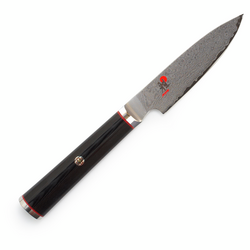

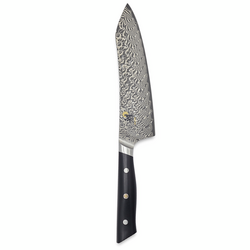
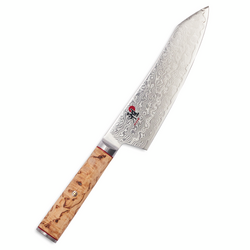
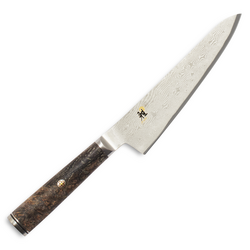
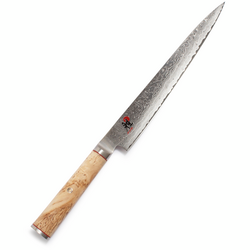
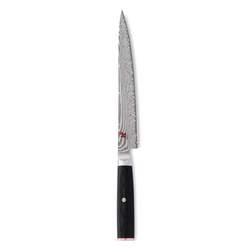
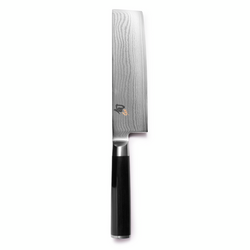
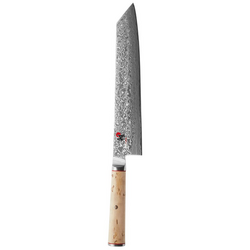
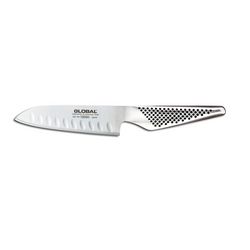
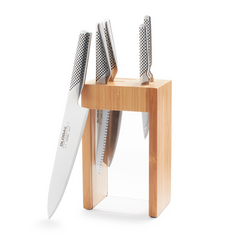
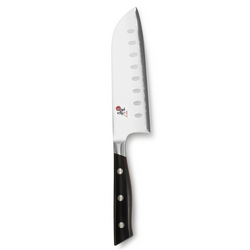
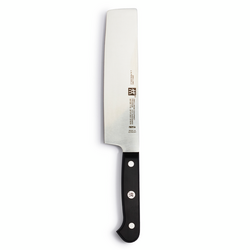
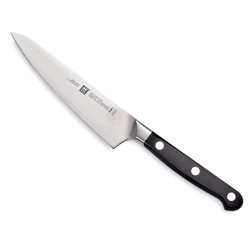
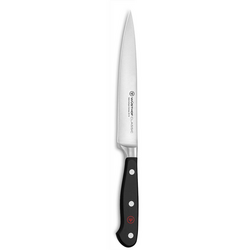
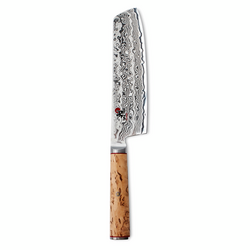
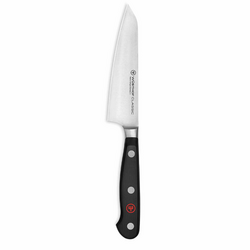
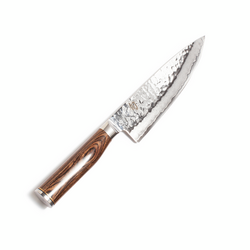
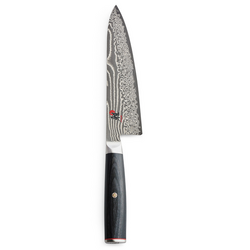
)